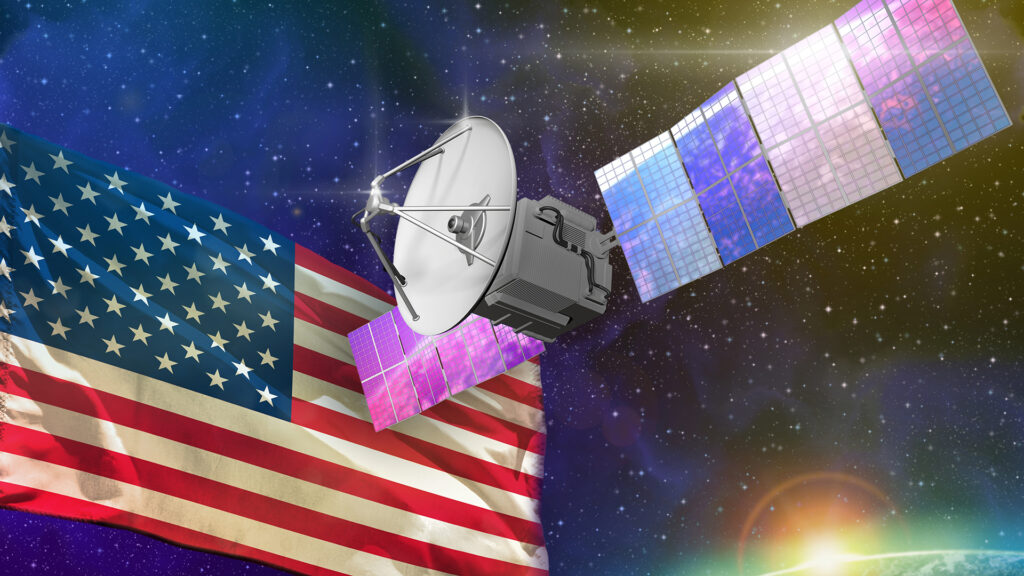NOAA Space Commerce Office (OSC) discusses how strategic investment and innovation are driving the rapid growth of the US space economy.
The space industry has evolved from a niche sector to a global economic factor, restructuring the industry and moving forward with inspiring technological advances that will affect our daily lives. As spaces become more accessible through advances in technology and collaboration, the US is in a position to lead this transformation.
The expansion of the space economy is not just about exploring new frontiers. It is to harness the possibilities of space to promote innovation, economic growth and national security. To find out more, I spoke to the OSC to delve into how strategic investment and policy development can shape the future of the US space economy and ensure long-term success.
Can you explain the importance of strengthening and growing the US space economy?
The space industry is a rapidly expanding economic powerhouse. According to the Bureau of Economic Analysis, the US space economy accounted for $23.21 billion in total production and $54.5 billion in private sector compensation, supporting 347,000 private sector employment in 2022.
Increased commercial space activity, satellite launches, and government investment in space exploration and development will drive this significant growth. The sector includes a wide range of activities, including satellite manufacturing, deployment and services. Lunar Exploration; Infrastructure Development for Low Earth Orbit (LEO) and Cislunar Spaces. Remote sensing; communication infrastructure. Data processing, analysis, and AI.
These advances have created many commercial opportunities across a variety of national and international industries. Beyond immediate commercial interests, space-related research and development continues to promote innovation, workforce development and economic growth. While strengthening and expanding the US space economy is not merely essential, it is our responsibility to maintain our country’s global technical leadership and promote economic prosperity in all areas.
What are the important trends and opportunities that are driving growth in the US space economy today?
A wide range of industries are supported by the space economy. These industries include defense, agriculture, transportation, manufacturing, healthcare and banking. The space economy has spurred an astonishing expansion of use cases in highly commercialized areas such as location data, communications, and earth imaging. Furthermore, the commercial space industry boom has been amplified by increasing demand and reducing launch costs through strengthening technology, government investments and partnerships, widespread use of space data and AI-driven space systems, and extensive international cooperation. Masu. This has expanded the opportunity for businesses to innovate and commercialize new applications in existing space technology, creating and operating new applications.
How will OSC work to enhance the US competitiveness in the global commercial space industry and strengthen its presence in the international market?
As the number of countries and commercial companies involved in space activities and the diversity of launches to space increases, our partnership with international allies is essential to ensuring a sustainable environment.
Space Commerce Office:
Organize government industry engagement with countries around the world to identify opportunities and address barriers to increased commercial space cooperation. It defends industry-friendly policies within the US government. Develop policies to ensure the safe and sustainable use of the space for all users. We do just that by deploying traffic tuning for Space (TRACSS), an SSA system focused on USG safety. Operates a responsive light touch adjustment system for commercially available remote sensing systems.
How is the office adapting regulatory and policy frameworks to meet the rapid development of space technology?
Technology and applications within the space ecosystem continue to be faster. This is hoping that governments will be agile, performance-oriented, and try new things like industry does. Regulatory priorities need to be balanced to support the public interest, while striving to not curb innovation. Furthermore, the space economy is made up of global participants and requires cooperation and cooperation with international and domestic partners.
International standards, regulatory frameworks, and norms of conduct are key factors for long-term sustainability and success in all countries. To that end, OSC has developed and socialized its “vision for global SSA coordination.” It outlines OSC’s efforts towards an open, transparent international system that will enable SSA coordination to ensure reliable and efficient services for global spacecraft operators.

We are also preparing to implement a “new space activity” regulatory system. The White House, Congress and Industry all show that they consider the OSC to be the appropriate regulator of new commercial activities such as satellite services, spatial manufacturing and the use of space resources. Congress is now considering a range of proposals, including those released by the White House last year. In preparation for these expanded authorities, we work closely with the industry through the newly formed advisory committee ACE to understand the needs of our operators.
Space safety and sustainability are becoming increasingly essential. What are the key areas and innovations the US targets to increase the safety and sustainability of space operations?
Space debris mitigation and satellite safety are important areas for all countries as space participation is becoming more common and more government and private stakeholders participate. To ensure the sustainable use of this valuable resource.
In 2025, OSC will offer the first phase of TRACSS. TRACSS provides basic SSA data and services for civil and civil space operations. Additionally, OSC regularly holds conversations with partners around the world to support the safe operation of space assets and the sharing of critical safety and the location and disposal information of objects. The OSC believes these activities are important in maintaining a safe and sustainable environment.
The US invests in supporting small and medium-sized businesses, labor training, space research and development, innovation and manufacturing. Why is investing in these factors essential to growing the country’s space economy?
Small and medium-sized American businesses have always been the mainstay of the American economy. These businesses are the key points of origin for generating important jobs, catalyzing innovation, and commercializing new ideas. As the space economy quickly leaves government sole aid and becomes more public and private efforts, contributions from American small businesses will be in keeping the US competitive in the global space ecosystem It will become even more important.
Supporting and promoting academic programs that provide these businesses with the technical and practical expertise needed to succeed is what the US needs to remain a world leader in space technology, operations and innovation It is important to ensure that.
The focus is in particular on increasing space-based Earth observation capabilities. What are the benefits of investing in this technology in the US?
The advantages of space-based Earth observation capabilities are endless. Remote sensing allows for information to be retrieved at once over a wide area, and localized data collection can be expensive or unrealistic. From disaster monitoring, weather forecasting, climate assessment, helping you explore and optimize your resources to planning your infrastructure, space-based observations are what we live in, how we live, and how we live. It enhances the capabilities of governments, industries and researchers to learn more about the world they live in. Use it in a more sustainable way.
The investments and the resulting innovations in remote sensing technology will help everyone provide critical information so that more informed decisions can be made, and the US will be able to manage the environment, national security Maximize your activities in security, economic development and scientific research. Commercial remote sensing capabilities can also help you achieve national goals, including security, environmental protection and disaster response.
What is the long-term vision for the US space economy? And how does OSC plan to achieve it over the next 10 years?
The Space Commercial Bureau of Space Commercial is focused on promoting the US competitiveness in the space economy. First, using data, industry partners, communities and academic institutions will help the OSC to guide policy and governance that will encourage widespread participation. Economic success and sustainability of US companies participating in the global space economy.
Second, OSC works together through participation with foreign partners and nation-states to ensure that space utilization is sustainable and safe for all. Finally, OSC acts as a conduit of information to private and public partners, in a way that highly technical and sometimes esoteric concepts and languages can be understood and translated into actions by both government and private sector partners. It helps to translate. This leads to a more complete understanding of the space, its opportunities and challenges, and how to work together to make better use of it.
Source link

